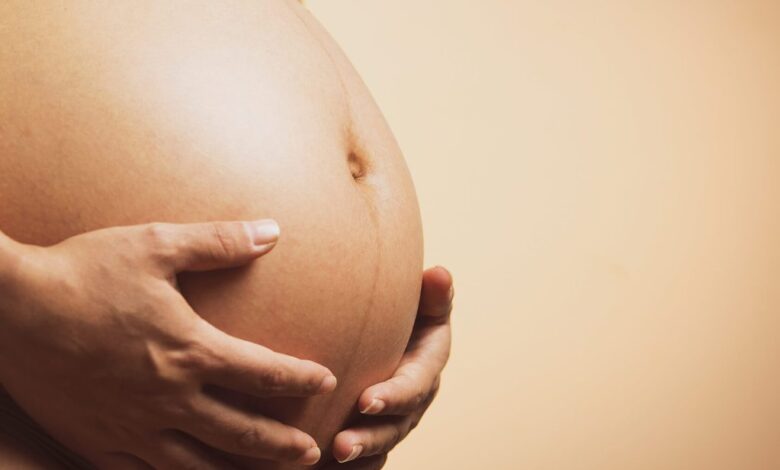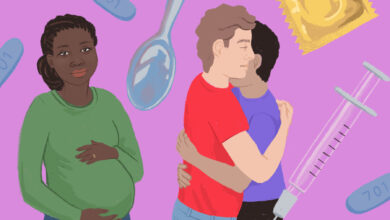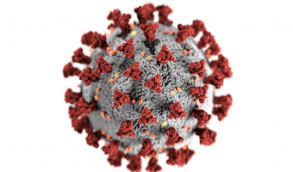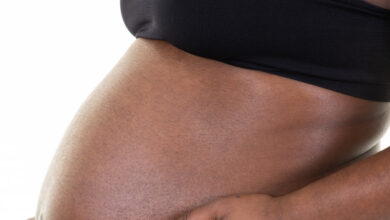Earliest signs that you are pregnant

The following early signs and symptoms of pregnancy checklist are only a guideline. Many early pregnancy symptoms can appear similar to routine pre-menstrual discomforts.
Tender, swollen breasts
Your breasts may provide one of the first symptoms of pregnancy. As early as two weeks after conception, hormonal changes may make your breasts tender, tingly or sore. Or your breasts may feel fuller and heavier.
Fatigue
Fatigue and tiredness also ranks high among early symptoms of pregnancy. During early pregnancy, levels of the hormone progesterone soar. In high enough doses, progesterone can put you to sleep. At the same time, lower blood sugar levels, lower blood pressure and increased blood production may team up to sap your energy during your pregnancy.
Slight bleeding or cramping
Sometimes a small amount of spotting or vaginal bleeding is one of the first symptoms of pregnancy. Known as implantation bleeding, it happens when the fertilised egg attaches to the lining of the uterus – about 10 to 14 days after fertilisation. This type of bleeding is usually a bit earlier, spottier and lighter in colour than a normal period and doesn’t last as long. Some women also experience abdominal cramping early in pregnancy. These cramps are similar to menstrual cramps.
Nausea with or without vomiting
Morning sickness, which can strike at any time of the day or night, is one of the classic symptoms of pregnancy. For some women, the queasiness begins as early as two weeks after conception. Nausea seems to stem at least in part from rapidly rising levels of estrogen, which causes the stomach to empty more slowly. Pregnant women also have a heightened sense of smell, so various odors – such as foods cooking, perfume or cigarette smoke – may cause waves of nausea in early pregnancy. There are some hints and tips to help combat the effects of morning sickness.
Food or cravings
When you’re pregnant, you might find yourself turning up your nose at certain foods, such as coffee or fried foods. Food cravings are common too. Like most other symptoms of pregnancy, these food preferences can be chalked up to hormonal changes – especially in the first trimester, when hormonal changes are the most dramatic.
Headaches
Early in pregnancy, increased blood circulation caused by hormonal changes may trigger frequent, mild headaches.
Constipation
Constipation is another common early symptom of pregnancy. An increase in progesterone causes food to pass more slowly through the intestines, which can lead to constipation.
Mood swings
The flood of hormones in your body in early pregnancy can make you unusually emotional and weepy. Mood swings also are common, especially in the first trimester.
Faintness and dizziness
As your blood vessels dilate and your blood pressure drops, you may feel lightheaded or dizzy. Early in pregnancy, faintness also may be triggered by low blood sugar.
Raised basal body temperature
Your basal body temperature is your oral temperature when you first wake up in the morning. This temperature increases slightly soon after ovulation and remains at that level until your next period. If you’ve been charting your basal body temperature to determine when you ovulate, its continued elevation for more than two weeks may mean that you’re pregnant.
Missed Period
Perhaps the most obvious early symptom of pregnancy is when you’ve missed your period. This possible sign of pregnancy is often what causes women to search for more details about the other pregnancy symptoms.
Some women might only experience a much lighter period compared to their usual. You might not experience any of the pregnancy signs listed below until around the time you notice you’ve missed your monthly cycle.
Just “Feeling” Pregnant
This early pregnancy symptom may be the reason why you are checking this list right now. Many women believe they have an intuition about pregnancy signs. Their intuition is often proven correct.
Maybe you just feel different; tired, moody, queasy, lightheaded. You may also have heartburn, constipation, or find yourself making more frequent trips to the toilet. Perhaps you feel a dull ache or stiffness in your lower back, you have sore breasts or they seem overly sensitive, or you are simply not feeling like your usual self.




